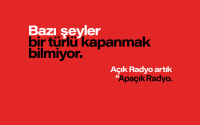20 May 2005
Leaders of the Arctic region's indigenous people on Friday urged European countries to step up the fight against global warming, saying it is threatening their environment, economies and cultures.
The eight-country Arctic Council said the annual average amount of sea ice around the North Pole has decreased about eight per cent in the last 30 years because of global warming fuelled by greenhouse gas emissions.
"There is some tough sledding ahead to make the rest of the cuts in greenhouse gases that will be needed" to stop global warming, said Chief Gary Harrison, a council member, at a meeting in Copenhagen. He urged European countries to lower emissions beyond what's required under the Kyoto Protocol on climate change.
The protocol, which took effect in February, commits participating industrialized states to reduce their combined greenhouse gas emissions by 5.2 per cent below 1990 levels by 2012. The treaty has been ratified by at least 140 countries, including Canada. The United States countries that have not signed on.
The council believes temperatures in the Arctic will increase three degrees Celsius by 2080.
"To some, that's just the difference between putting a jacket on and off," said Clive Tesar, of the council's Indigenous Peoples' Secretariat. "But three degrees is a major change for the ecosystem, for animals, for plants, for peoples that have adapted to a particular temperature."
The softening permafrost has already driven some polar animals further north. There are fears that polar bears and some seal species could face extinction in just decades because of global warming.
Global warming also has an impact on infrastructures that are built on permafrost.
"If it stays hard like concrete, that is not a problem, you can build anything you like on it," Tesar said. "But it starts to melt (and) creates a little bit of a problem. Houses start to lean, pipelines rupture and roads fall apart."
The indigenous leaders were in Berlin earlier this week and will travel to Brussels, Belgium, on Sunday.
"We are asking each country in the world to examine if it is truly doing its part to slow climate change," said Larisa Abryutina of the Russian Association of Indigenous Peoples of the North, which is part of the Arctic Council.
The United States, the only Arctic region country that has not adopted the Kyoto treaty, says the restrictions are flawed and could hurt its economy.
The Arctic region is home to about four million people, including more than 30 different indigenous groups.
Created in 1996, the Arctic Council - which comprises Canada, Denmark, Finland, Iceland, Norway, Russia, Sweden and the United States - is a regional partnership for sustainable development.
-
On the Net: www.arcticpeoples.org
http://www.680news.com/news/international/article.jsp?content=w052021A






